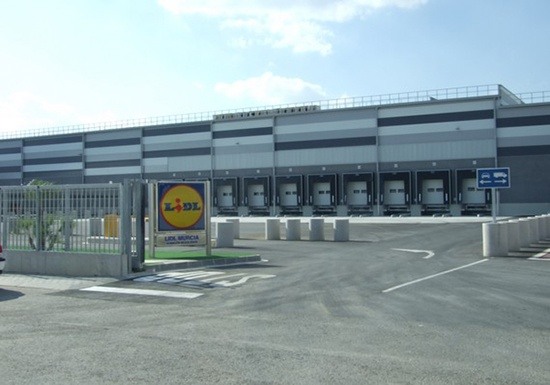The warehouse is a European benchmark in sustainability by obtaining a double VERDE certification and DGNB. It has an area of 37,800 m2 and serves all LIDL stores in the Levante and southern areas of Spain.
The LIDL logistics platform in Lorquí (Murcia) is a 37,800 square metre warehouse that serves the LIDL shops in Levante and also serves as a gateway to supply the rest of the LIDL shops in Europe with produce from the market gardens of Murcia.
The building, which in addition to being a warehouse, also has spacious offices of 1,400 square meters, is located on a 60,000 square meter plot, with excellent communications near the A-30 motorway linking Murcia and Alicante.
All DGNB sustainability certification and VERDE tasks have been carried out by Zero Consulting and have included the adaptation of the DGNB system for logistics warehouses to Spain in collaboration with the German Sustainable Building Council (DGNB).
The work carried out is as follows:
- Energy simulation with Open Studio and Energy Plus
- Energy simulation of industrial refrigeration systems with Energy Plus
- Full life cycle analysis (LCA) of the environmental impact of the building
- Analysis of materials to reduce the impact on the local environment (building occupants, air quality and wildlife)
- Study of the economic cost of the building over its entire life cycle (LCC)
- Consulting, documentation and auditing work to obtain the two certifications.
The grade obtained has been:
- DGNB Gold Certification
- VERDE certification GBCe 4 leaves
Some of the most important aspects of the building for minimising its environmental impact are as follows.
Use of Ammonia and CO2 in substitution of HCFC gases
Cooling system that emits only 0.1% carbon dioxide emissions thanks to using refrigerants with less environmental impact
50% of the warehouse area is allocated for the storage of fresh and frozen products. For this reason, the cooling system is an important element for the maximum sustainability of the building, which is why this system has been constructed in such a way that it uses non-polluting and halogen-free gases.
Usually, CO2 emissions derived from cooling facilities represent up to 50% of the total emissions generated by distribution warehouses for supermarkets. In this case, the emissions resulting from the cooling system are very low, only 0.1%. This result is explained by the choice of refrigerants with less impact on climate change, such as ammonia, which has zero impact (1 kilo of NH3 emitted is equivalent to 0 kilos of CO2 emitted), and CO2 with very reduced impact (1 kilo of CO2 from cooling is equivalent to 1 kilo of CO2 emitted), compared to other gases commonly used in industrial cooling, such as R404A (1 kilo of R404A emitted is equivalent to 3,260 kilos of CO2 emitted).
Photovoltaic roof capable of self-supplying the warehouse on the sunniest days
Murcia is an area with high solar radiation, so given that the maximum electricity consumption occurs on the hottest days, it has been decided to install a photovoltaic roof on the building with an installed power of 500 kW peak, capable of self-supplying 70% of the warehouse's annual electricity consumption. This allows for significant savings in maximum contracted power.
Adoption of high-quality measures and technical elements
Finally, the warehouse incorporates technical measures and elements recommended to obtain a high DGNB and VERDE rating, such as, for example, the lighting throughout the building is provided by LED lamps with adjustable intensity, which in many cases exceed the minimum required by current regulations, so that the result is a sustainable building, of high quality and excellent performance that allows its life cycle to be prolonged beyond the usual.


